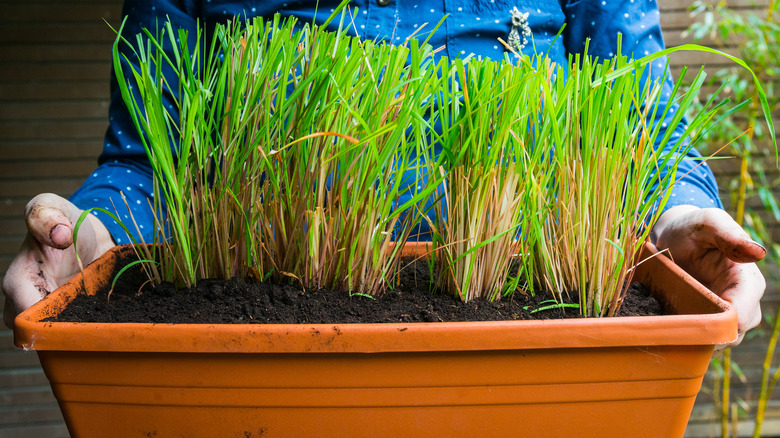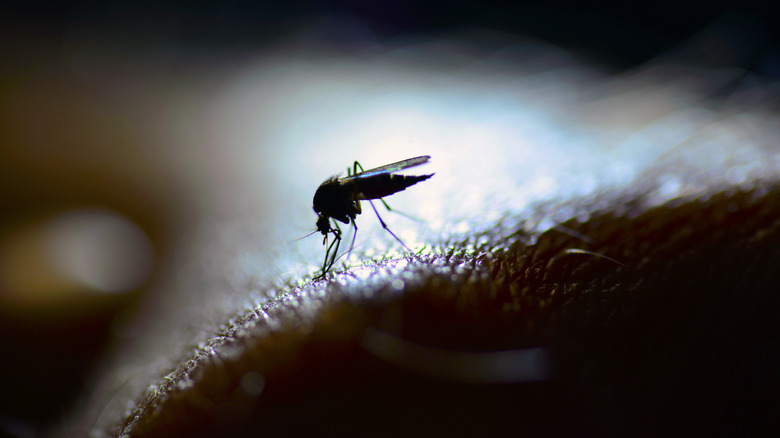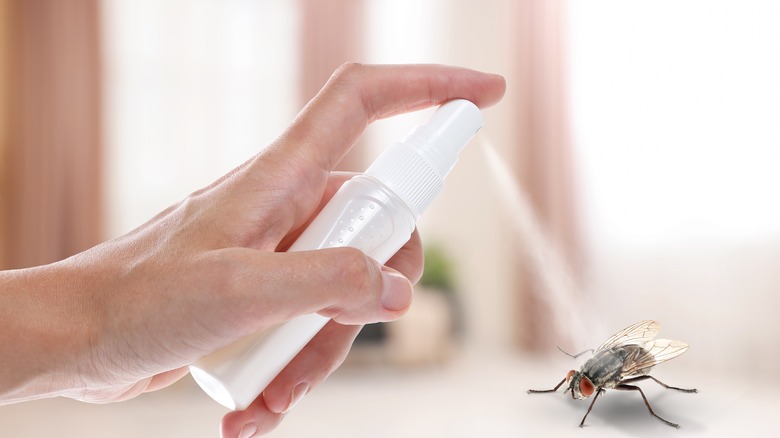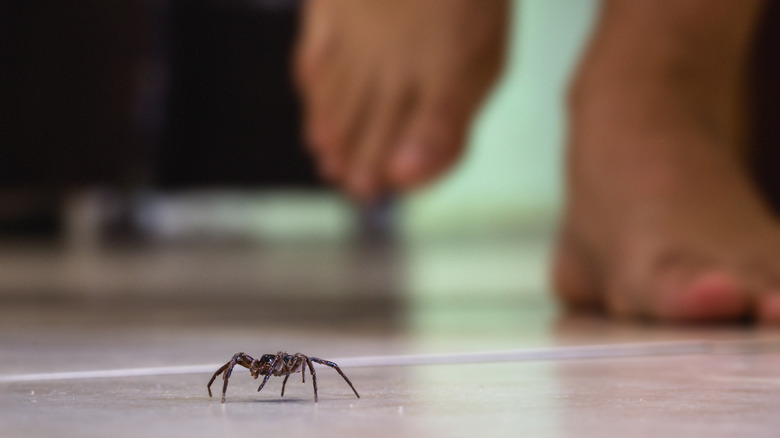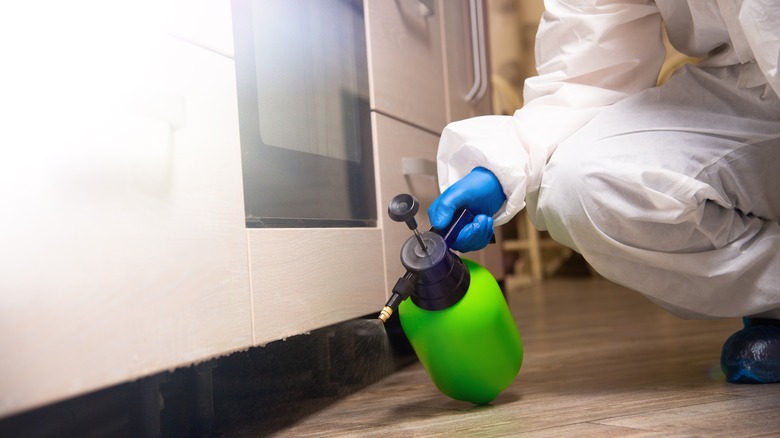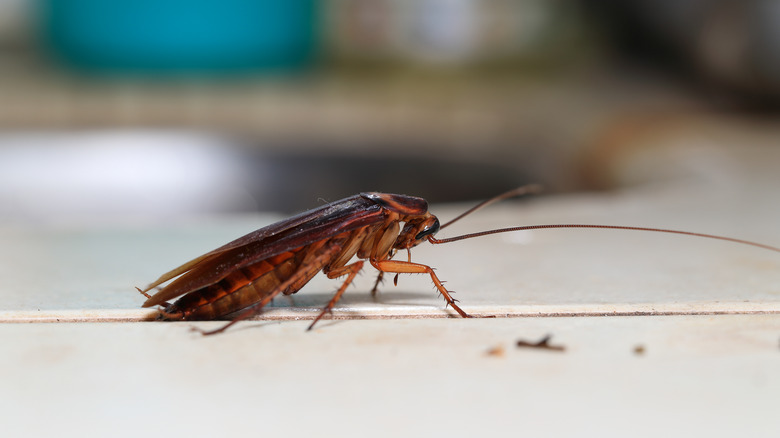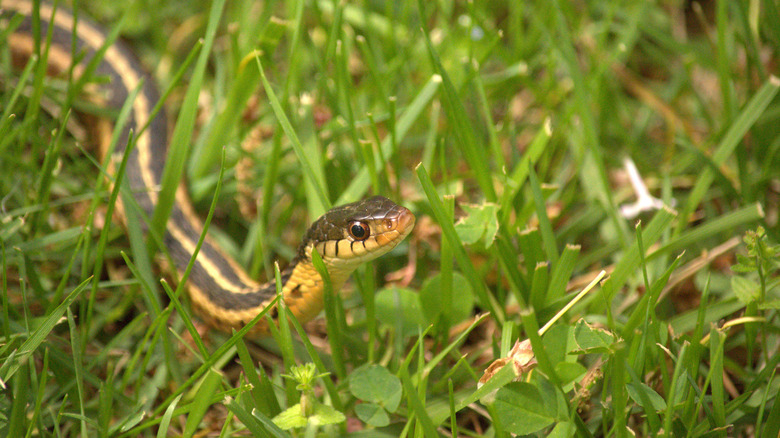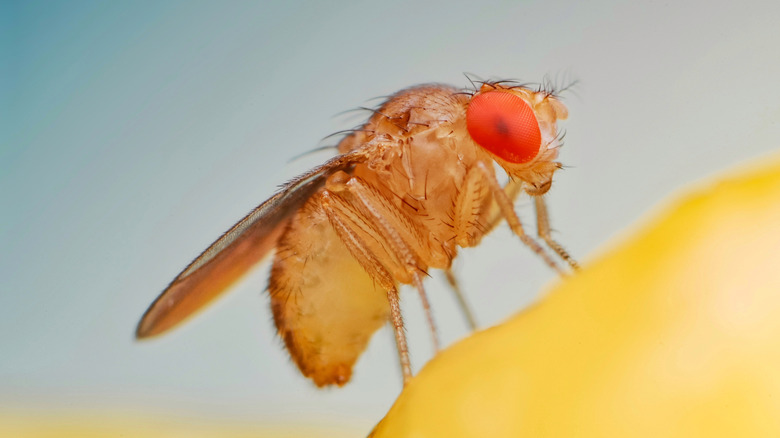11 Pests That Are Repelled By Lemongrass (& The Best Ways To Use It)
Lemongrass is a popular large plant that many people like because it has a strong citrus smell. Along with helping fill in your yard or garden, it can also make pests less likely to hang around. There are dozens of uses for this plant, ranging from brightening up your food creations to warding away pests.
Lemongrass has an oil that many pests can't stand, and it's great for keeping them at bay due to its citral and geraniol content. Understanding how effective it is can change how you approach pest control and give you a natural way to protect your plants and home.
Adding lemongrass to your pest management routine means more than plopping a few plants randomly around your yard, though. Instead, you'll want to strategically place it and consider using sprays or infusions to make it as effective as possible. For example, you can dilute lemongrass oil and mix a spray to disrupt ant trail pheromones, making it less likely they'll come back. Using this plant might not be enough for severe infestations, but you can use it as part of your pest management routine to ward off these critters.
Lemongrass plants deter mosquitoes
Mosquitos are buzzing pests that can carry a range of diseases from malaria to the Zika virus, and they can't stand lemongrass because it has high levels of citronella. This is a natural oil the plant creates, and its strong citrus smell will overwhelm the mosquito's olfactory organs. It masks the environmental cues mosquitoes use to find their meals, so lemongrass is a great deterrent.
Lemongrass is the plant you'll want to have around your home if you have a mosquito problem. To maximize its repelling powers, plant it around your home's perimeter and outdoor gathering spaces, creating dense clumps with long, serrated foliage and pungent oils. For personal use, consider getting a lemongrass essential oil, mixing a few drops with a carrier oil like coconut or jojoba, and rubbing it into your skin. This will ward off the mosquitoes, and the carrier oil will hydrate your skin. Putting lemongrass oil in diffusers or making a spray (using roughly three drops for every two ounces of water) and setting or spritzing them around your outdoor living spaces will also ward off the pests. However, how effective this is will depend on the compound concentration, so you want to reapply as soon as it begins to fade.
Lemongrass spray and plants stop flies
Flies are a common household pest, and they love eating waste and food scraps around your kitchen or garbage area. Lemongrass's strong citrus scent will help keep them away. Citral will mask the smells that attract the flies and interfere with their scent receptors, making it less likely that they'll land and contaminate your surfaces or food. It's a safe and eco-friendly alternative to chemical-based fly sprays that are bad to disperse around your pets and kids.
To deter flies, make a natural fly spray by adding a few drops of lemongrass oil into a bottle of two cups of water and spritzing it around doors, windows, and your kitchen areas. Regularly reapplying is necessary, especially during peak fly season or in high-traffic areas. You can also sit potted lemongrass around your home to repel them, focusing on areas where flies can get in or tend to gather.
Spiders will avoid potted lemongrass
You can repel house spiders with potted lemongrass. Even though spiders are great for controlling other insects, spotting them can still be off-putting. Lemongrass is an effective natural way to keep them out of the house due to its strong smell. Spiders do not like citronella, so they avoid it. The scent overwhelms them when it makes contact with the leg hairs that they use to follow smells, making them much less likely to go near it. This makes lemongrass an excellent way to reduce the number of spiders in your house without using chemical bombs or sprays.
Putting potted lemongrass in any area where spiders may sneak into your home — like windowsills or doorways — can help keep them out. The natural barrier that the strong-smelling foliage creates will cause spiders to go elsewhere. However, instead of potted plants, essential oils are very effective too. Put a few drops of lemongrass oil on cotton balls and stick them in areas where you have spotted spiders creeping around. Regularly refresh because the scent will dissipate over time. However, keeping pets and kids away from the oil is essential because undiluted oil can be too strong and cause skin irritation, and it's toxic to cats, dogs, and horses in large quantities.
Lemongrass spray disrupts ant pheromone trails
To eliminate ants in the kitchen, consider using essential oils like lemongrass. Ants use scent trails to communicate with their colony, navigate, coordinate activities, and find food. The trails contain pheromones, chemical signals that you can't see, but which can be disrupted by strong, conflicting scents. Lemongrass' strong citrus fragrance has geraniol and citral compounds that mask these trails and disorient the ants. This simple disruption makes it hard for ants to return to food sources, reducing how many you find in areas treated with lemongrass. It also makes it harder for them to communicate, negatively impacting the colony.
To use this scent against ants, mix a few drops of lemongrass oil into a spray bottle of water, or get a kitchen towel damp with the oil and spray or wipe it directly on the indoor trails around windows, doors, counters, or cracks where the ants are getting in. For ongoing issues, reapply daily until the problem resolves. Always ensure you have good ventilation when you spray it because it can be very strong at first. You can also saturate cotton balls with lemongrass oil and put them where you see ants, refreshing them periodically as the scent fades.
Cotton balls with lemongrass oil deter roaches
If you're trying to figure out how to get rid of roaches, try lemongrass oil. Geraniol and citral are the main compounds that repel roaches. These pests navigate with their antennae, and they're very sensitive to strong smells, and lemongrass overwhelms them. They're less likely to go into areas where you have lemongrass, and it disrupts their ability to communicate using pheromones, which they use to survive and reproduce.
Soak cotton balls in lemongrass essential oil, and place them in spots where you have seen roaches scurrying about, like behind appliances, in kitchen cabinets, and near entry points. Keep in mind that this works best in small, closed areas where the scent remains strong. If you're sensitive to the smell of the pure oil, use a diffuser or put a few drops of the essential oil into your mop water and mop your floors instead to deter pests.
Spray lemongrass oil to ward off fleas
Fleas are tiny pests that can jump and like to feed on animal and human blood. They can also spread diseases and parasites like tapeworms. Lemongrass plants are effective natural repellents for this pest because they have a strong citrus scent, which repels fleas. The sharp smell can interfere with the pest's senses, repelling them and potentially stopping an infestation. To keep fleas out, you can also add lemongrass oil to your pet care routine. Put a few drops of the oil into your pet's shampoo and give your pet a bath like you usually would, lathering and rinsing well to remove any residue.
Only put a few drops of the essential oil into your pet's shampoo to ensure it's not strong enough to irritate their skin when you give them a bath. It's also a good idea to try it on a small spot 24 hours before the bath and monitor your pet for any negative reaction. Also, note that cats are very sensitive to essential oils, so it's a good idea to consult your vet for the correct dosage and recommendations.
Plant lemongrass to deter snakes
Lemongrass creates an aromatic and physical barrier against snakes, and this is excellent news if you live in a more rural area where snakes are abundant. The citrus smell of lemongrass is strong enough to interfere with the snake's Jacobson's organ (sensory receptor that lets them taste and smell simultaneously). They need this organ to sense threats and find food, so they tend to avoid the strong smell of lemongrass because they get disoriented. It creates a natural barrier effectively.
Planting lemongrass can ward snakes away from common spots in your yard. Plant it in borders around gardens, walkways, and foundations where snakes go through or seek shelter. However, you don't want to rely only on lemongrass plants and oil to prevent large snake infestations. Keep the garden area trimmed to reduce places where snakes can hide, remove debris, and consider putting up fine mesh fences around your yard. If you have a lot of snake encounters, consider contacting a professional, especially if you have a venomous snake problem.
Lemongrass oil wards off mealybugs
Mealybugs are small insects that create cotton-like clusters on your indoor and outdoor plants' stems, leaves, and fruit. They feed on the sap, slowly weakening your houseplants and making the leaves turn yellow and eventually drop. They also leave a sticky substance called honeydew on your plants, which draws ants while encouraging soot mold growth. Lemongrass oil's strong smell and active compounds naturally repel mealybugs. The citrus-based, sharp scent of the oil will deter these pests, making it a great method to control mealybug infestations.
To control these pests with lemongrass oil, make a spray with two drops of lemongrass oil into two ounces of water in a bottle. Shake it and liberally coat your plants, focusing under the leaves and at the stem joints where this pest gathers. Reapply every five to seven days to keep it effective. The oil can be strong, so use gloves when applying to prevent irritation to your skin.
Lemongrass extract can repel weevils
Weevils are small beetles that infest stored grains, like rice, and they can cause a huge amount of damage in a short time. They eat the grains and lay their eggs inside them, making them inedible. Lemongrass extract impacts weevils' ability to feed and can have toxic effects on them. Having lemongrass oil around masks your stored grains' scent, helping to keep weevils out of the pantry.
To keep weevils out of your home with lemongrass extract, apply it around any entry points or storage areas. Mix water and vinegar in a spray bottle in a 4:1 ratio, and add 30 drops of lemongrass oil to wipe down your shelves, bins, and any surface where you store grains, reapplying it periodically, especially after you clean the spaces. Test the diluted extract on a small area to ensure it doesn't stain or damage the material. Also, keep your grains in airtight containers to create a physical barrier that blocks weevils from getting in. Combining these practices will enhance your overall pest management strategy, keeping your pantry free from weevils.
Lemongrass oil spray repels fruit flies
Fruit flies are tiny insects that love fermenting, ripe, or rotting fruit and vegetables. They tend to hang around kitchens and breed very quickly while contaminating your food with bacteria. Lemongrass oil is a strong deterrent against them because of its citrusy scent. The compound easily overwhelms the fruit flies' olfactory receptors, covering the smell of potential food and confusing them.
To repel fruit flies, make a lemongrass spray. Mix 10 drops of lemongrass oil with two ounces of hot water and spray it in areas where fruit flies hang out, like on kitchen counters, in garbage bins, or by fruit bowls. Ensure you don't spray it directly on food items because you don't want to ingest the oil. However, you'll probably need more than just this oil to repel fruit flies. Regularly clean your kitchen surfaces, and store your fruit and vegetables properly as well.
A lemongrass and peppermint oil mix repels ticks
Ticks latch onto humans and animals to feed on their blood. Along with being a pest, they can carry various diseases like Rocky Mountain spotted fever and Lyme disease. Lemongrass and peppermint oils are great tick repellents. Lemongrass' citronella is unpleasant for ticks, and they do not care for the scent of peppermint oil either. If you mix them, you create a scent barrier that ticks can't tolerate, keeping them at bay. Mix roughly 15 drops of each oil into a glass jar with ⅓ cup of distilled water and ¼ of witch hazel. Shake before transferring to a spray bottle and reapply it every one or two hours.
However, note that while this natural spray will help ward off ticks, it shouldn't be the only thing you use, especially if tick infestations are common in your area. Essential oils don't last as long or have the same efficacy as chemical alternatives like DEET and permethrin. Reapply your natural repellent every few hours or after you swim to keep it effective, and always check for stray ticks when you come inside, even if you use a repellent. Before you put essential oils on your kids or pets, talk to your doctor to ensure it's safe.
